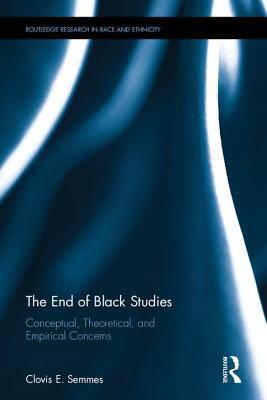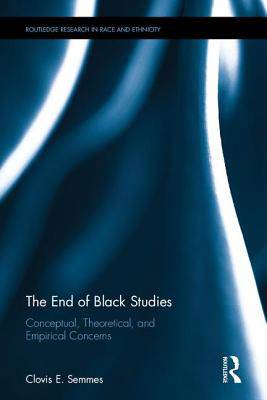
- Afhalen na 1 uur in een winkel met voorraad
- Gratis thuislevering in België vanaf € 30
- Ruim aanbod met 7 miljoen producten
- Afhalen na 1 uur in een winkel met voorraad
- Gratis thuislevering in België vanaf € 30
- Ruim aanbod met 7 miljoen producten
Zoeken
€ 305,45
+ 610 punten
Uitvoering
Omschrijving
This book examines the foundational parameters and historical mission of the field of African-American Studies, which emerged from a broad-based Black intellectual tradition defined by the metaproblem of cultural hegemony, broadening our thinking about the field and identifying Afrocentric or Black-centered approaches to knowledge production that are distinctly different from, yet inclusive of, a historiographical emphasis on ancient Egypt, but alternative to the claim of a singular African worldview.
The End of Black Studies has received the 2017 Outstanding Book Award from the National Council for Black Studies.
Specificaties
Betrokkenen
- Auteur(s):
- Uitgeverij:
Inhoud
- Aantal bladzijden:
- 148
- Taal:
- Engels
- Reeks:
Eigenschappen
- Productcode (EAN):
- 9781138674660
- Verschijningsdatum:
- 12/09/2016
- Uitvoering:
- Hardcover
- Formaat:
- Genaaid
- Afmetingen:
- 157 mm x 234 mm
- Gewicht:
- 362 g

Alleen bij Standaard Boekhandel
+ 610 punten op je klantenkaart van Standaard Boekhandel
Beoordelingen
We publiceren alleen reviews die voldoen aan de voorwaarden voor reviews. Bekijk onze voorwaarden voor reviews.











